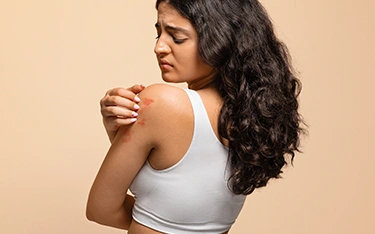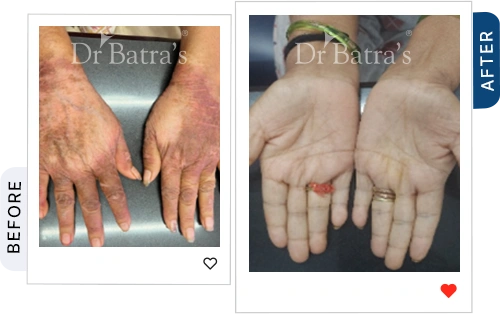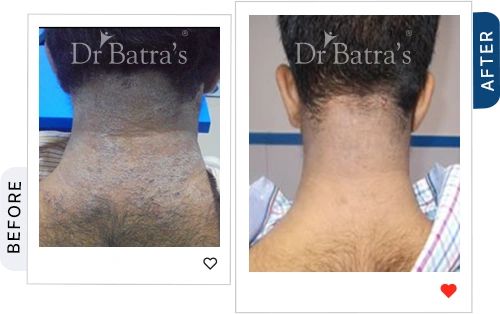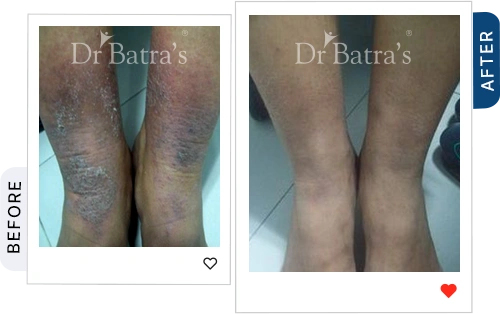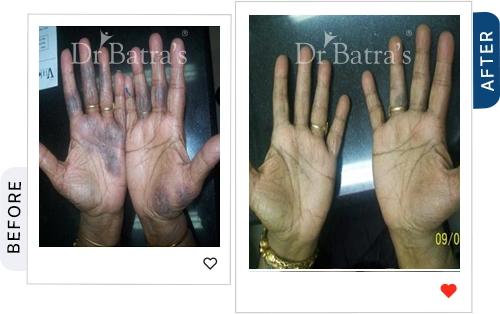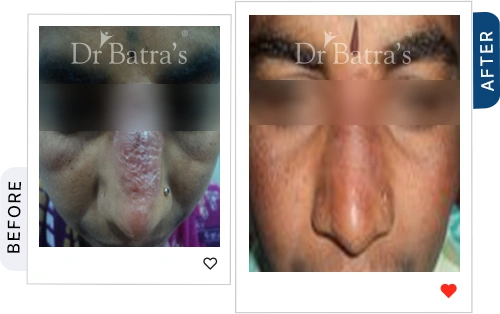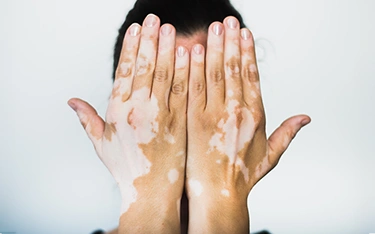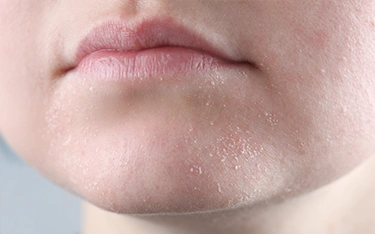FAQs
Eczema is often due to genetic skin barrier defects and an overactive immune system. It makes skin vulnerable to allergens, irritants, and internal triggers like stress or food sensitivities.
Dairy, eggs, gluten, soy, and sugar can cause flare-ups in some people, especially children. Identifying these with expert help is essential for long-term control.
Yes, it’s linked with asthma, allergic rhinitis, and food allergies. It’s part of a group of allergic conditions known as the atopic triad.
No. Eczema is not caused by fungi, though scratching may cause secondary infections. It’s an immune-based, non-contagious skin condition.
Homeopathy works well for long-term management. In acute cases, topical emollients and antihistamines may help, but they don’t address the root cause.
Yes. Emotional stress increases inflammation and worsens flare-ups. Stress management is crucial in eczema care.
Generally dry eczema is not contagious. However, with secondary infection it is contagious.
Stress, metals (like nickel), heat, or sweat can trigger episodes. Identifying these through lifestyle evaluation is essential.
Absolutely. Emotional stress weakens skin immunity, making flare-ups more frequent and severe.
Triggers include allergens, stress, cold weather, irritating fabrics, or dietary changes. Each person has a unique trigger profile.
In India, eczema affects up to 12% of children and around 10% of adults, particularly in urban settings.
Yes. It commonly runs in families, especially if there’s a history of asthma, hay fever, or allergies.
Absolutely. An imbalanced diet, poor sleep, and high stress can all contribute to frequent flare-ups.
